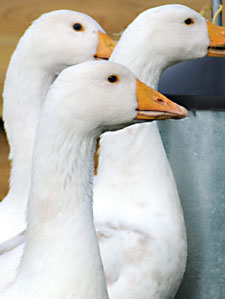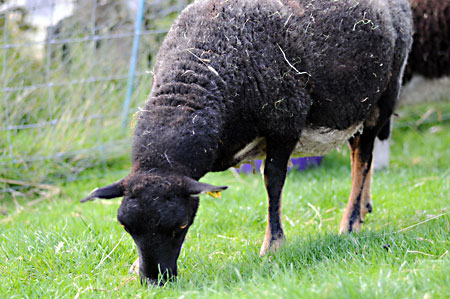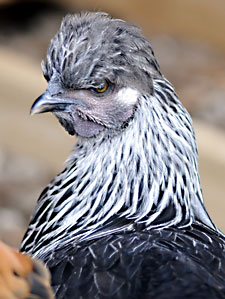Welcome to Relaxed Farming
- Alpacas
- Chickens
- Dairy Goats
- Ducks
- Geese
- Pigs
- Pygmy Goats
- Quail
- Rabbits
- Sheep
- Turkeys
- Polytunnel
- Photo Stories
- Video Stories
- Food
- Smallholding Map
- 2013
- 2014


- August
- September
- October
- November
- December
- January
- February
- March
- April
- May
- June
- July
- August


- 1
- 2
- 3
- 4
- 5
- 6
- 7
- 8
- 9
- 10
- 11
- 12
- 13
- 14
- 15
- 16
- 17
- 18
- 19
- 20
- 21
- 22
- 23
- 24
- 25
- 26
- 27
- 28
- 29
- 30
- 31
Saturday, 3rd August 2013
Had the most amazing thunderstorm early yesterday evening. The animals were all freaked with varying degrees of intensity, worst - the dogs; least bothered - the ducks and geese who remained outside the entire time as though absolutely nothing was happening. The good news though is that the recent rains have meant our grass has started to grow again, much to the delight of the sheep. We have limited grazing so were getting a tad anxious and whilst we always have hay for the goats, it's a bit much to have to feed hay to the sheep in August!!
Grass is one of the most important crops/food sources a smallholder/farmer has and whilst it needs to be 'looked after', without the right amount of rain and warmth, all the looking after in the world won't help. We had a very late spring this year and had to wait for ages for the grass to really start growing. We have now had quite a dry summer which has meant its growth has slowed down and the sheep have been eating it faster than it has been able to grow back. It is amazing how much difference the rain has now had and along with a lot of other smallholders and farmers we are now a little happier.
A friend is coming to buy four of our young chicks this evening: the oldest are three months now and most are showing whether they are hens or cockerels. Cockerels have larger combs and wattles; their bodies tend to be thicker-set and they are usually bolder than hens. The difficult ones are the Silkies who often don't 'reveal' what they are until they are much older. This Silkie cross is looking very hen-like at the moment and if she does lay, her eggs should be white! How do we know? Take a closer look at her ear lobe: the colour of a chicken's ear lobe is a good indication of the colour of egg it will lay, so in this case white!!


